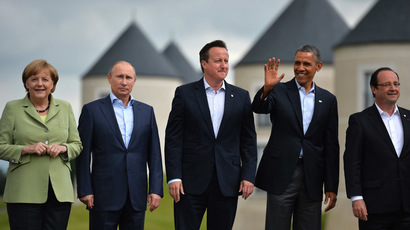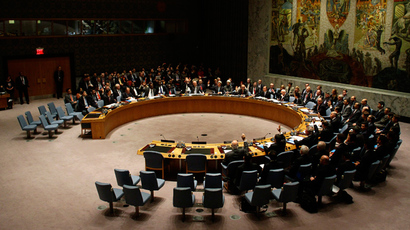'Privacy essential to democracy': Germany, Brazil introduce anti-spying UN resolution
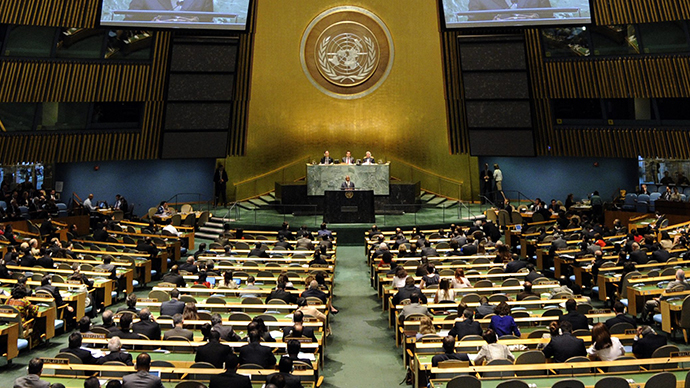
Brazil and Germany have introduced to the UN General Assembly their draft resolution calling for internationally recognized rights to privacy in the wake of the ongoing NSA scandal in which the leaders of the two states were spied on.
The document urging an end to the global electronic espionage and
the extension of Internet freedom was read out in the Third
Committee of the UN for social, humanitarian and cultural
affairs.
"The General Assembly ... affirms that the same rights that
people have offline must also be protected online, in particular
the right to privacy," the draft resolution said.
It also expressed concern "at human rights violations and
abuses that may result from the conduct of any surveillance of
communications, including extraterritorial surveillance of
communications."
The draft which is likely to be supported by over 20 nations will probably undergo
changes before it is adopted. It calls for “measures to put
an end to violations of these rights and to create the conditions
to prevent such violations, including by ensuring that relevant
national legislation complies with their obligations under
international human rights law." In addition the resolution
calls for the creation of independent oversight mechanisms in
every country to curb spying.
It also urges UN human rights chief Navi Pillay to produce a
report "on the protection of the right to privacy in the
context of domestic and extraterritorial, including massive,
surveillance of communications, their interception and collection
of personal data."
The document recommends expanding the protection defined in the
International Covenant on Civil and Political Rights, to privacy
and electronic communications. It "affirms that the same
rights that people have offline must also be protected online, in
particular the right to privacy." However the draft leaves
room for the suspension of such guarantees "for the
protection of national security or of public order."
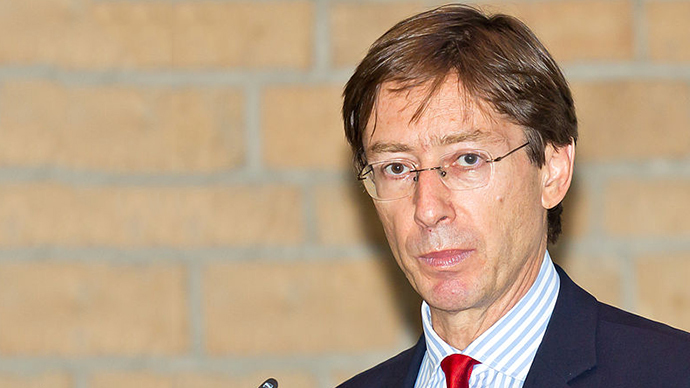
"Where do we draw the line between legitimate security concerns
and the individual right to privacy? And how do we ensure that
human rights are effectively protected both offline and
online?" German Ambassador Peter Witting asked when
presenting the jointly sponsored German-Brazilian draft.
His counterpart Brazil's Ambassador Antonio de Aguiar Patriota
said: "In the absence of the right to privacy, there can be
no true freedom of opinion and expression, and no effective
democracy."
"Privacy is of the essence in safeguarding individuals
against abuse from power," Patriota told the Third
Committee.
"Brazil believes it is crucial for the international community to
engage in a serious in-depth debate on how to uphold certain
fundamental rights of human beings in the digital age, including
in light of concerns with national security and criminal
activity," he said.
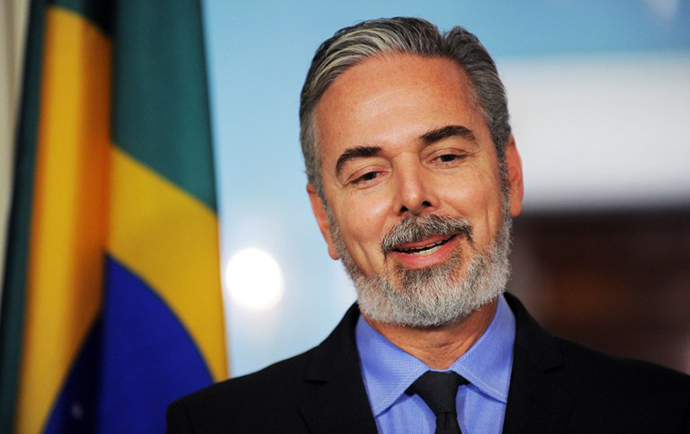
Thursday’s resolution comes amid international scandal over NSA
spying on the world’s population and eavesdropping on a number of foreign leaders, including Brazil's
President Dilma Rousseff and German Chancellor Angela Merkel.
Leaving the blame aside, the document presented in the UN does
not name the United States or any other country as the offender.
NSA spying revealed by the former employee Edward Snowden showed
that Washington has spied on at least 35 world leaders besides
the exposed the mass surveillance against private citizens and
business. According to Snowden’s leak intelligence agencies from
all signatories of the ‘Five Eyes’ agreement – also including the
UK, Canada, Australia and New Zealand – collaborated with the
NSA.
Since Snowden’s leaks surfaced in June, protests demanding more
privacy protection have engulfed countries around the globe with
thousands of people worldwide having joined the recent Million Mask March rallies organized by the
amorphous Anonymous movement.
General Assembly resolutions are not legally binding but they do
voice global opinion. The UNGA vote on the document is expected
in three weeks at the earliest.
"The United States has made no contention that it faces a
public emergency threatening the territorial integrity or
sovereignty of the country, nor told anyone it is derogating from
its treaty obligations, so this isn't really in play,” Dina
Pokempner, the general counsel of Human Rights Watch told The
Associated Press.













